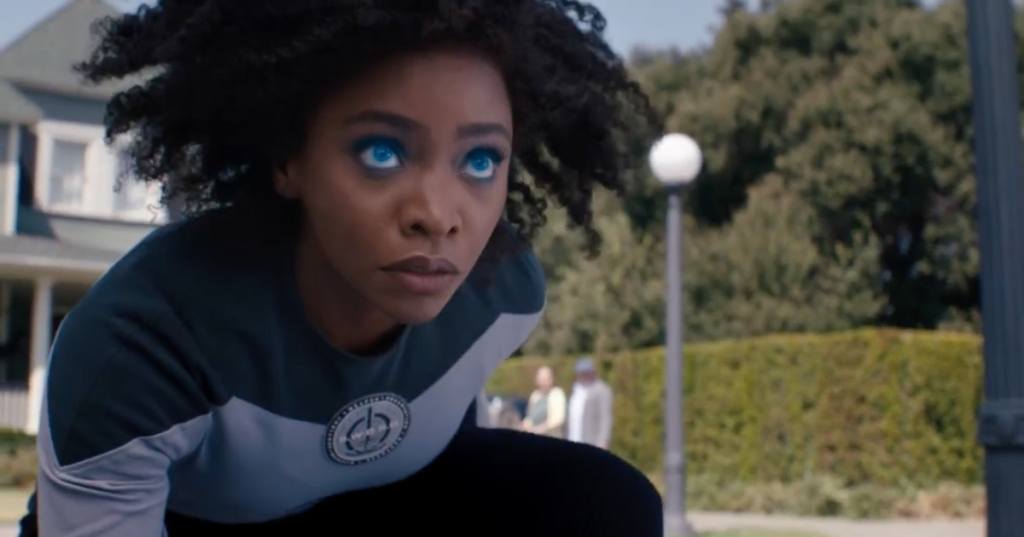A brief look at representation in pop culture
*SPOILERS AHEAD*
If you are white and reading this, it is unlikely that you reflect upon the characters you see in media constantly looking like you. This is because every day, the culture reflects not only you but almost infinite versions of you in the shape of CEOs, politicians, reporters, artists, etc. However, those who are not white have great difficulty finding mass media representation of themselves, as well as representation that indicates their humanity as multifaceted (Smith n.d.).
Being able to relate to characters onscreen is necessary not only for us all to feel seen and understood but also for others to see and understand us. For those who have little-to-no contact with members of certain groups, media representation has a powerful educational impact (Cortes 1987; Lawson 2018).
When the only portrayals audiences see of minority characters are negative, those portrayals transcend to public image… Whether intentionally or unintentionally, both the news and the entertainment media ‘teach’ the public about minorities [and other groups], such as women, LGBTQIA+ and the elderly
Cortes 1987; Lawson 2018
This is one of the many reasons Marvel’s 2018 film, Black Panther (Chadwick Boseman), is significant. Rather than dodge themes surrounding race and identity, it tackles these still-present issues head-on, serving an audience that has long gone underrepresented. This is because films that depict a reality where whiteness isn’t the default are typically “ghettoised”, marketed to non-white audiences as niche entertainment, rather than the mainstream (Smith n.d.).

Following Black Panther’s box office success, the Marvel Cinematic Universe (MCU) released their first female solo lead film— Captain Marvel (2019); deemed one of the strongest avengers by fans.

The arrival of Carol Danvers (Brie Larson) was likely a direct result of the backlash the franchise has endured for years, having hyper-sexualised and reduced Scarlett Johansson‘s character, Black Widow, to “A piece of ass” (Johansson 2021; Clarke 2021). After a decade of playing Natasha Romanoff, the MCU finally released Johansson’s first solo lead film, Black Widow (2021), last month.

Also in 2021, the MCU began branching into television series, streaming weekly episodes on Disney+.
Fan-favourite, WandaVision, showcased powerful female leads, Wanda Maximoff (Elizabeth Olsen) and Agatha Harkness (Kathryn Hahn), demonstrating value in feminine power.
Additionally, the series offered a glimpse into a new black female protagonist, Monica Rambeau (Teyonah Parris).

The Falcon and The Winter Soldier explored race issues, as well as mental health and poverty, while re-introducing Sam Wilson (Anthony Mackie), as the new Captain America—a role typically played by and associated with a white, cishet male.

The series also introduced elderly Korean War veteran, and original super-soldier, Isaiah Bradley (Carl Lumbly).

Following this, the MCU has confirmed Loki (Tom Hiddleston) as their first bisexual lead. Loki series director, Kate Herron, wrote on Twitter,
From the moment I joined [the series] it was very important to me, and my goal, to acknowledge Loki was bisexual. It is a part of who he is and who I am too. I know this is a small step but I’m happy, and heart is so full, to say that this is now Canon in [the MCU].
Kate Herron, 2021

Ultimately, diversity in media is important, as it brings attention to an otherwise underrepresented community (Portelli & Campbell-Stephens 2009). It offers comfort and relatability, which is beneficial to not only the consumer but also the company. In pop culture especially, audiences must be able to see themselves in specific characters. By promoting inclusivity to the global majority (Campbell-Stephens 2009), companies can reach consumers on an international level, therefore benefitting immensely.
While Marvel has been finding new ways to effectively incorporate representation, there is still a long way to go. I for one, as a regular MCU consumer, am looking forward to seeing where the future leads. If 2021 is anything to go by, we sure are in for a treat.
References:
Campbell-Stephens, R 2009, ‘Investing in Diversity: Changing the Face (and the Heart) of Educational Leadership’, School Leadership and Management, vol. 29, no. 3, pp. 321-33.
Clarke, C 2021, I Enjoy How Sexy She Is, As Long As She’s In Control’: Black Widow’s Cate Shortland on Scarlett Johansson, viewed 6 August 2021, https://www.theguardian.com/film/2021/jul/02/i-enjoy-how-sexy-she-is-as-long-as-shes-in-control-black-widows-cate-shortland-on-scarlett-johansson?fbclid=IwAR0J0S_33ZwI0P5ehEeZ1Js4xPzjvzVfmRP1oULBU1a0O8jP_Pzz4LRQoD8#=
Cortes, C 1987, ‘A Long Way to Go: Minorities and the Media’, Centre for Media Literacy, viewed 6 August 2021, http://www.medialit.org/reading-room/long-way-go-minorities-and-media
Lawson, K 2018, Why Seeing Yourself Represented on Screen Is So Important, viewed 6 August 2021, https://www.vice.com/en/article/zmwq3x/why-diversity-on-screen-is-important-black-panther
Portelli, J & Campbell-Stephens, R 2009, ‘Leading for Equity: The Investing in Diversity Approach’, Toronto Edphil Books, viewed 6 August 2021, http://john-peter-portelli.com/wp-content/uploads/2013/05/Leading-for-Equity-Edphil-Books.pdf
Smith, J n.d., The Revolutionary Power Of Black Panther, viewed 5 August 2021, https://time.com/black-panther/


Leave a comment